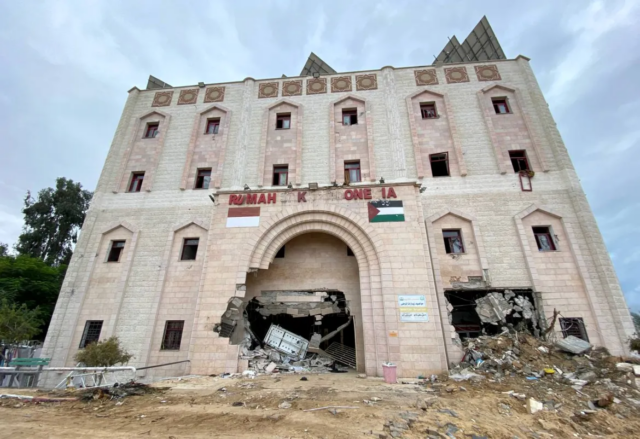
Brief: Rising Risk of Radicalization in Indonesia Following Outbreak of Israel-Hamas War
Publication: Terrorism Monitor Volume: 21 Issue: 23
By:

In January 2016, then-vice president of Indonesia, Jusuf Kalla, held a press conference in Jakarta to announce the opening of the Indonesian Hospital in Gaza. The hospital was intended to be a symbol of “Muslim unity” between the world’s most populous Muslim country, Indonesia, and the overwhelmingly Muslim population in the Gaza Strip (Vice President of the Republic of Indonesia, January 9, 2016). The Medical Emergency Rescue Committee (MER-C), an Indonesian charity, would be responsible for running the hospital.
Just over seven years later, the hospital is at the center of controversy between Israel and Indonesia, with Israel claiming that the hospital sits atop a maze of underground tunnels used by Hamas to store weapons (Times of Israel, November 7). To support this claim, the Israeli Defense Forces (IDF) released a satellite image showing a tunnel shaft connecting the two main buildings of the Indonesian Hospital and a rocket launch point, which was located near the tunnel’s entrance. According to Israeli Rear Admiral Daniel Hagari, Hamas built the Indonesian Hospital in order to cover its underground tunnel infrastructure (Times of Israel, November 5). A short-term truce between Israel and Hamas was reached on November 24, which allowed the two sides to trade prisoners and hostages. Truce or no, the Indonesian Hospital has been so heavily damaged in the fighting that it may never reopen (Al Jazeera, November 25).
With the Indonesian Hospital making headlines back in Indonesia, various Islamic organizations have begun to vehemently demonstrate in support of Palestine. The Indonesian Ulema Council’s (MUI) chairman of fatwas, Asrorun Niam Sholeh, has issued a fatwa in support of Palestine, calling for a boycott of Western companies perceived to be supporting Israel (The Jakarta Post, November 10). Just as this fatwa was issued, McDonalds in Indonesia donated more than $100,000 to Palestine through the National Alms Agency (Baznas) (The Jakarta Post, November 9). This helped McDonald’s franchises avert protests from the United People Front (FUB) and Islamic Defenders Front (FPI). FPI was banned in 2020 for engaging in violence against religious and other minority groups, as well as for their goal of imposing sharia law on the country (Channel News Asia, December 31, 2020).
Whether the news of the Indonesian Hospital’s destruction will combine with pro-Palestinian sentiments to provoke any attacks in Indonesia remains to be seen. Any terrorist activity would, however, disrupt the relative calm Indonesia has enjoyed since the decline of the Islamic State in 2019 (see Terrorism Monitor, February 21). Nonetheless, the calls for “jihad” by FPI at pro-Palestinian protests in Indonesia (which continue despite the official ban on the group) indicates the potential for future radicalization related to the Israel-Hamas conflict. This could rile Indonesians, particularly FPI supporters, into more direct violent actions and attacks (The Sydney Morning Herald, October 11).



